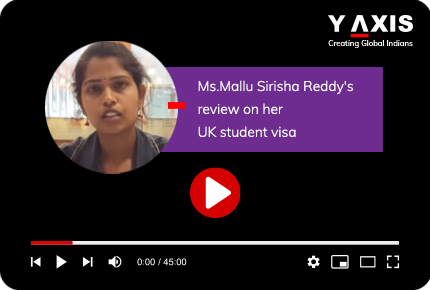Posted on January 13 2015
Plan to send non-EU international graduates home blocked
By , Editor
Updated April 27 2023
UK Home Secretary Theresa May has been forced to back down on a plan to require all non-EU international students to leave the country on graduation and to apply for new visas if they intend to work in Britain, according to reports in the media.
May’s plan, which she reportedly wanted to include in the Conservatives’ manifesto for the general election on May 7, emerged just before the Christmas break and there has been little response from the higher education sector.
But it provoked a devastating response this week from Sir James Dyson, the industrial designer and entrepreneur. Writing in The Guardian newspaper, Dyson said that the policy was a short-term vote winner, which would lead to “dire consequences for businesses” such as his own that rely heavily on engineers and scientists from overseas.
“May’s immigration plans simply force the nimble minds we nurture to return home and create competition overseas,” he said.
And now, according to a report in the Financial Times, opposition from ministers, including Chancellor of the Exchequer George Osborne, has kicked the proposal off the agenda.
Seeking to justify the policy, May had warned that 600,000 international students would come to the UK by the 2020s.
"We also need to recognise that the latest survey showed that in one year 121,000 students came in from overseas and only 50,000 left in that year and figures suggest that in the 2020s we will see 600,000 overseas students each year in this country," she said.
She had argued that changes to the immigration system would still ensure the "brightest and the best" select the UK for their higher education but that the restriction was needed because every year tens of thousands of students stayed on after their courses had finished.
But Dyson said sending students home, particularly postgraduates, with breakthrough technology developed in the UK represented “very good value to our competitor nations”.
The magnitude of the increase in overseas students predicted by May ran counter to recent trends – the number of entrants fell for two years, although visa applications recovered in September 2014. Taken together, total international student numbers (excluding EU students) at UK universities fell from 302,685 in 2011-12 to 299,975 in 2012-13, according to the Higher Education Statistics Agency.
There were suggestions that May wanted the Conservative party to be seen to be tough on immigration in the approach to the general election as it comes under pressure from the UK Independence Party.
But evidence from the representative body for UK universities showed the extent to which they miscalculated.
A report in August 2014 from Universities UK, International students and the UK immigration debate, found strong public support for international student migration, and that the public understands the economic and educational benefits brought to Britain by those who come here to study.
A survey for the report found that 59% said the government should not reduce international student numbers, even if that limited the government’s ability to cut immigration numbers overall, with only 22% taking an opposing view.
Crucially, 75% thought that international students should be allowed to stay to work in Britain after graduating from British universities, using their skills for the benefit of our economy, for at least a period of time.
May had also clashed with Liberal Democrat Business Secretary Vince Cable, whose department is responsible for universities in England. He has warned that the public debate about immigration was in danger of damaging the "economically valuable" recruitment of overseas students to the UK.
Vice-chancellors fear that the repeated rhetoric from the government is in danger of sending the wrong message to potential international students. There is already strong evidence of a steep decline in the numbers of international students from India.
Leading scientists said the proposal conflicted with the government's Science and Innovation Strategy, published only last month.
Dr Sarah Main, director of the Campaign for Science and Engineering, or CaSE, told the BBC: "I am dismayed that the government seems intent on thwarting its commitment to make 'Britain the best place in the world to do science' with immigration proposals that threaten to put off the exceptional scientists and engineers who wish to come here.
"Theresa May's proposition... directly undermines that goal."
Former universities minister David Willetts MP wrote in The Times that May's plan was "mean-spirited and inward-looking".
Willetts said he had been thanked by a former Australian minister because the UK's tightened rules for post-study work visas had boost Plan to send non-EU international graduates home blocked Australia's market share of international students.
For more news and updates, assistance with your visa needs or for a Free Assessment of your profile for Immigration or Work Visa’s just visit www.y-axis.com
Tags:
Share
Options for you by Y-Axis
Get it on your mobile
Get News alerts
Contact Y-Axis

